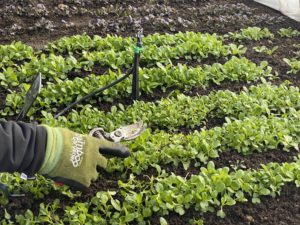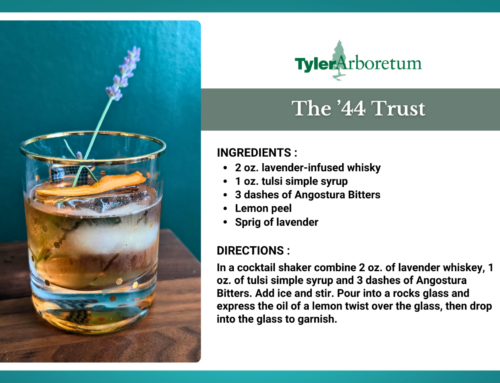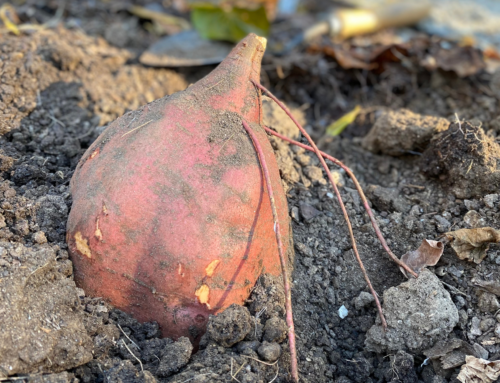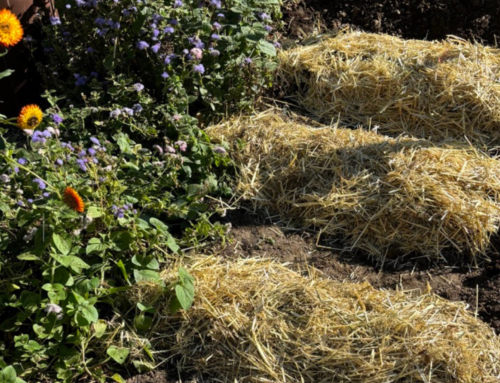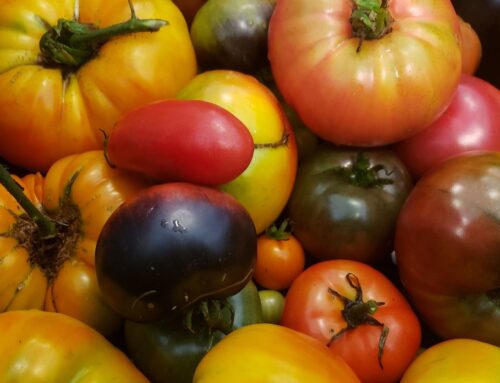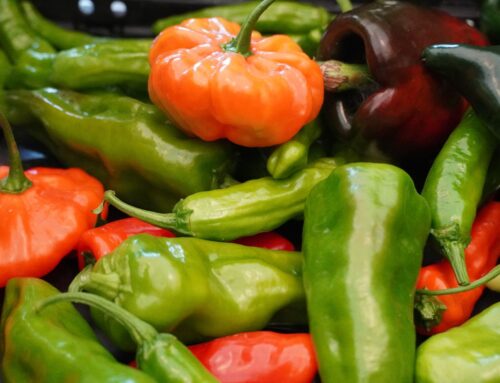This month we will increase our knowledge about how to help prevent harmful pests and weeds in the garden, and what to do when they start to impede you from having a healthy, thriving vegetable garden.
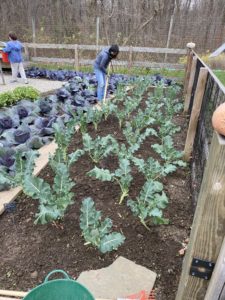
PESTS
Let’s begin with some things you can do to minimize or even prevent pests from residing in your vegetable garden:
- Give your plants room to breathe. Air circulation is essential and a good breeze regularly is key for healthy plants. Tight plantings create a problem by providing shelter for feeding insects and hiding them from predators.
- Water in the morning, so your plants will be well hydrated when the hottest part of the day comes around, and thus be less apt to wilt and become stressed. This will make them less appealing to pests who like to prey on stressed plants.
- Attract toads and frogs. Make your garden welcoming to those who feed on insects. Frogs and toads are top on the list. Provide them with a bowl of water, and maybe even a toad house, so they can take up residence.
- Court the beneficial insects. One way to do this is through companion planting, which can bring about more vigorous growth and lead to bigger harvests. Companion planting can also help repel pests and attract the predators of common pests.
- Stay on top of your harvest. Vegetables falling off of plants and onto the ground are an easy mark for insects. Overripe vegetables that still cling to the plant tend to shift the whole plant into decline, thus attracting insects who prey on weak plants.
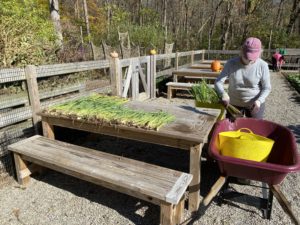
In addition to prevention, you may need to do pest management.
So, what is a gardener to do? Don’t give up or give in. Many of the products you already have at home can be used to manage pests in your vegetable garden without harmful effects to you or the earth. Consider spraying plants covered in aphids or mites with a soapy water spray (mix five tablespoons of dish soap with four cups of water). You can also set out saucers of beer or grape juice to trap slugs and snails to keep them from munching on leaves and roots. Additionally, you can make a pepper spray (two tablespoons of ground red pepper, six drops of dish soap, and one gallon of water) to spray on plants to repel spider mites and other insects. You can also manually remove pest insects where you see them, or remove infested parts of your plants.
For a list of common pests (photos included) for each vegetable and specific solutions, see Penn State Extension.
WEEDS
When it comes to troublemakers in the garden, we cannot limit ourselves to pests. We must also consider weeds. Controlling weeds in your garden is important to the health of your plants because they are competitors for water, nutrients and growing space.
Cultural controls are safe and effective methods of weed control, such as mulches and cover crops, which will prevent weeds from getting a hold and add nutrients to the soil.
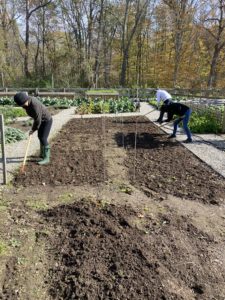
The best way to handle weeds when they do come up in your garden is to hoe them unless they have gone to seed. Weeds are like any other vegetation and will compost into the soil, adding nutrients. Hoe weekly so weeds do not get too big and cause a problem. It is important to hand weed when you have seed heads or you will just be replanting them when you hoe. The number one mistake many gardeners make is that they don’t pull the weed out correctly. The grab and snatch method snaps the stems but leaves the root behind in the ground. The correct way to pull a weed (yes, it is a learned skill) is the pinch and pull method. Pinch the weed close to the base and gently, but firmly, pull the weed out of the ground. Hopefully, all the roots will come away with the weed. Give yourself some time with this method; after a while, you will get a feel for how much of a gentle pull will remove the roots from the ground without breaking the stem. You can also use a tool like a digging trowel or soil knife to help loosen tough roots. Another option is to lay barrier fabric or a thick layer of mulch between the rows of vegetables. This will prevent weed seeds from taking hold.
Last, but not least, don’t forget that some people do their best thinking when weeding in the garden. In that vein, here’s to great thinking and ridding ourselves of some of the pests that bother us!
